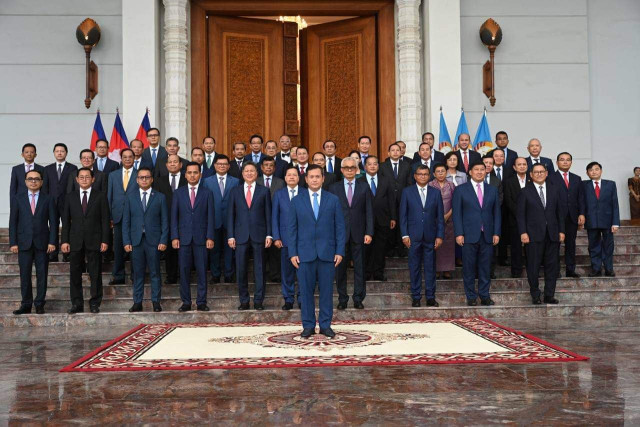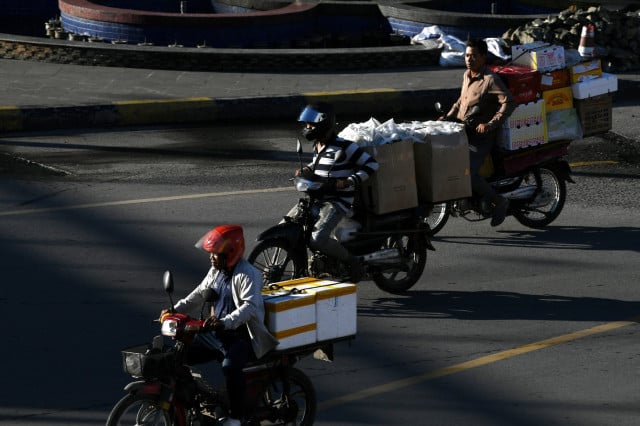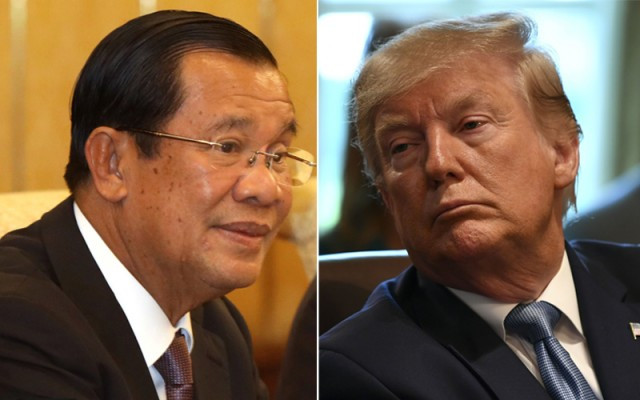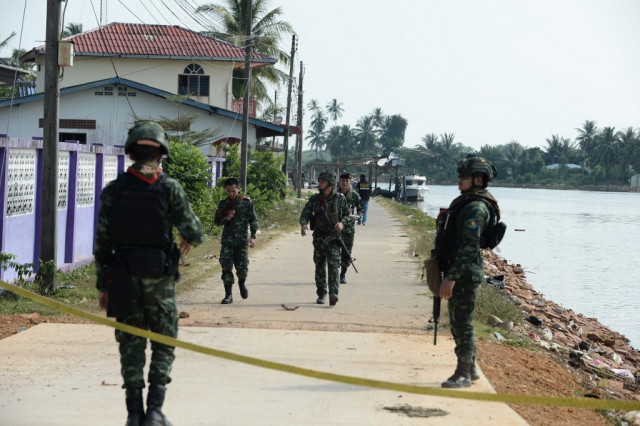Biggest Change in Government in Decades Sees the Rise of the New Blood

- By Teng Yalirozy
- August 22, 2023 8:34 PM
PHNOM PENH – The new Cambodian government was officially announced on Aug. 22, nearly a month after the July 23 national election. It includes both reappointed former ministers and members of the new generation, most of whom are relatives of long-time Cambodian People’s Party (CPP) leaders.
The new cabinet consists of 10 deputy prime ministers (DPMs), 21 senior ministers and 30 ministers. It took office after a vote of confidence in the National Assembly, in which 123 of the 125 lawmakers gave their support, and was officially appointed by royal decree late afternoon on the same day, as per the Cambodian Constitution.
Although the old political guard is giving way to a new generation of leaders – the new cabinet ministers have an average age of 48 – the transition to power is marked by strong family ties.
Hun Manet, the 45-year-old new government head, is the son of former prime minister Hun Sen, who stayed in power for more than 38 years.
His first deputy prime minister (DPM) is none other than National Police Chief Neth Savoeun, who is married to Hun Sen’s niece. Aun Pornmoniroth, the incumbent minister of Economy and Finance, is married to the daughter of late Education Minister Im Sothy. He is the only member from the former cabinet who retained his position of DPM.
The list of DPMs also contains Say Samal, the son of the incumbent Senate President Say Chhum, Sar Sokha, the son of former Interior Minister Sar Kheng, and Tea Seiha, the son of former National Defense Minister Tea Banh. While Say Samal moved from Environment Minster to Land Management Minister in the new administration, Sar Sokha and Tea Seiha take over their father’s portfolio.
Also promoted as DPMs are Vongsey Vissoth (minister in charge of the Office of the Council of Ministers), Koeut Rith (minister of Justice), and Sok Chenda Sophea who was the head of the Council for the Development of Cambodia and has been promoted minister of Foreign Affairs and International Relations.
Women account for only 10 percent of the cabinet
Out of 30 cabinet ministers, eight retain their position in the same ministry: Aun Pornmoniroth (minister of Economy and Finance), Hang Chuon Naron (Education Minister), Koeut Rith (Justice Minister), Chea Vandeth (Minister of Posts and Telecommunications), Phoeurng Sackona (Culture and Fine Arts Minister), Ing Kantha Phavi (Women’s Affairs Minister), Dith Tina (Agriculture, Forestry and Fisheries Minister), and Mao Havanall (minister in charge of the State Secretariat of Civil Aviation).
Like Sar Sokha or Tea Seiha, other new ministers have family links with members of the former government or with other CPP leaders. Chhay Rithisen, the new minister of Rural Development, is the son of former Planning Minister Chhay Thorn. Cham Nimul, the newly-appointed Commerce Minister, is the daughter of former Industry Minister Cham Prasidh; and Sok Soken, the new Tourism Minister is the son of late DPM Sok An.
The list goes on with Hem Vanndy, the new minister of Industry, Science, Technology and Innovation, who is the son-in-law of former Foreign Affairs Minister Prak Sokhonn; or with newly-appointed Planning Minister Bin Troachhey, who is the son of Bin Chhin, the former minister in charge of the Office of the Council of Ministers.
Minister of Social Affairs, Veterans and Youth Rehabilitation Chea Somethy is the son of late CPP President Chea Sim; new Environment Minister Eang Sophalleth is the son-in-law of former Land Management Minister Chea Sophara; and Peng Ponea, the new minister of Public Works and Transport is the son of former DPM Men Sam An. Hun Many, Hun Sen’s third son, was nominated minister of Civil Service.
Also nominated at the head of a ministry are Keo Rattanak (Mines and Energy, former director of Electricité du Cambodge), Say Samal (Land Management, former Environment Minister), Thor Chetha (Water Resources and Meteorology), Neth Pheaktra (Information), Huot Hak (National Assembly-Senate Relations and Inspection), Chheang Ra (Health, former Calmette Hospital Director), Chhay Borin (Cult and Religion) and Heng Sour (Labor and Vocational Training).
Out of 30 cabinet members, only three are women, accounting for 10 percent of the government. While Cham Nimul (Ministry of Commerce) is a newcomer, the other two – Phoeung Sakona (Ministry of Culture and Fine Arts) and Ing Kantha Phavi (Ministry of Women's Affairs) – have been in office for 10 and 19 years respectively.
Hun Manet took the chance of coming into power to create a new Secretariat of State in charge of border affairs, which will be headed by Lam Chea.
A total of 21 senior ministers have also been nominated and entitled to be in charge of “special missions”. These senior ministers are: Kun Kim, Ho Sithy, Ouk Rabun, Om Yentieng, Ieng Mouly, Thong Khon, Pich Sophoan, Prum Sokha, Sak Setha, Osman Hassan, Y Chhean, Ouk Prathna, Ouch Borith, Svay Sitha, Chhay Sinarith, Ly Thuch, Chhem Kieth Rethy, Chhieng Yanara, Sok Siphana, Keo Remy and Ky Tech.















